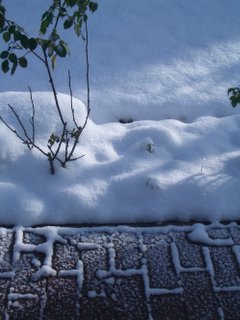
I feel there are many traditions that form my ways of knowing and ultimately my inquiry. Some traditions of practice and research are evident in my ways of knowing. Interconnectedness, collaboration, usefulness, beauty and possibility have been central to my ongoing inquiry. In my ways of knowing missing are some traditions that are embodied within me - particularly those which represent my immediate and more distant family. There is a conscientiousness and deep caring within me that is commonly exhibited within my family. These traits have had an enormous range of consequences for us - many self destructive at the same time as being enlightening and some just self-destructive. In some senses I feel it is this that has nurtured my ways of knowing - but in what senses?
What consequences do my traditions have for the purposes of my inquiry?
There is a broad and clear direction in terms of my inquiry and its purposes - but i think my answer to the previous question illustrates there is an-other I need to consider. Broadly my purposes are to take this playfulness and freedom of being thing that I know works for me and work out how it could work for others. The very personal traditions brought to me by my family need to be explored for me to be able to situate myself in my research. So one of the purposes of my inquiry turns out to be to explore that of me which is not mine. I am attracted to re-exploring Heidegger's they here - something to I will need to contemplate more.
What are the consequences for me? What personal resources can I bring to this inquiry? What do I lack and how will I cope with this?
The consequences for me are that I will have to go deeply in ways that I was not really expecting. I bring hope, motivation and some experience to this inquiry, but I know that there is so much I need to do, know, be... I guess that would be a purpose of this research for me to explore other aspects of being. In brief - I am ready - there are worlds out there (and in here) for me to explore...
Might my traditions conflict with these traditions that might influence my inquiry? Is this a problem? Why?
Percieved conflict is a powerful tool for reflection for me. I would be more concerned if my traditions did not show this sort of complexity. That I would view it as more problematic if there were no problems.
Could there be conflicts between different traditions that might influence my inquiry? What are the possible grounds for judging the quality of the inquiry?
I can view percieved conflicts between traditions as opportunities for transcendence and deeper understanding - transcendence tested through my ways of knowing and caring. This perspective is in conflict with some traditions - these traditions can be used to generate questioning to help keep me honest and ensure I have not strayed onto a path of tangential arrogance. These seem like possible grounds for judging the quality of my inquiry. Are they grounds enough?
Questions: (c) Pugh, R & Yaxley, B. 2005




